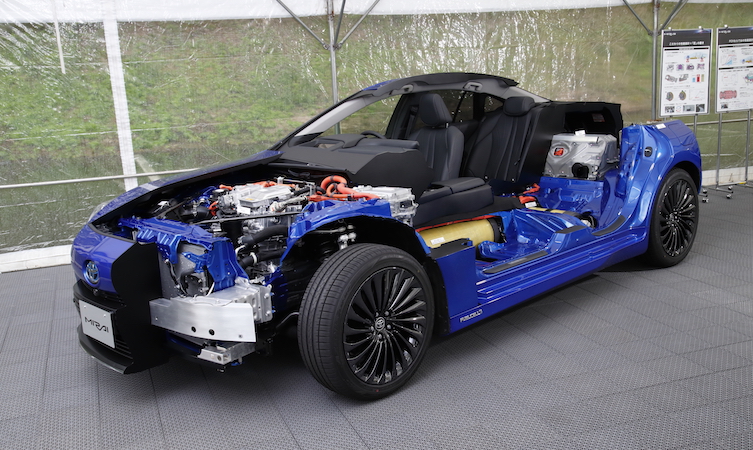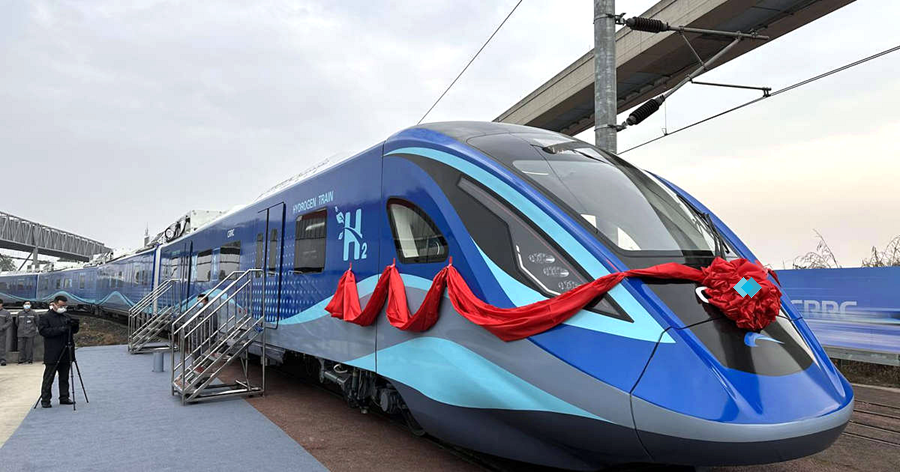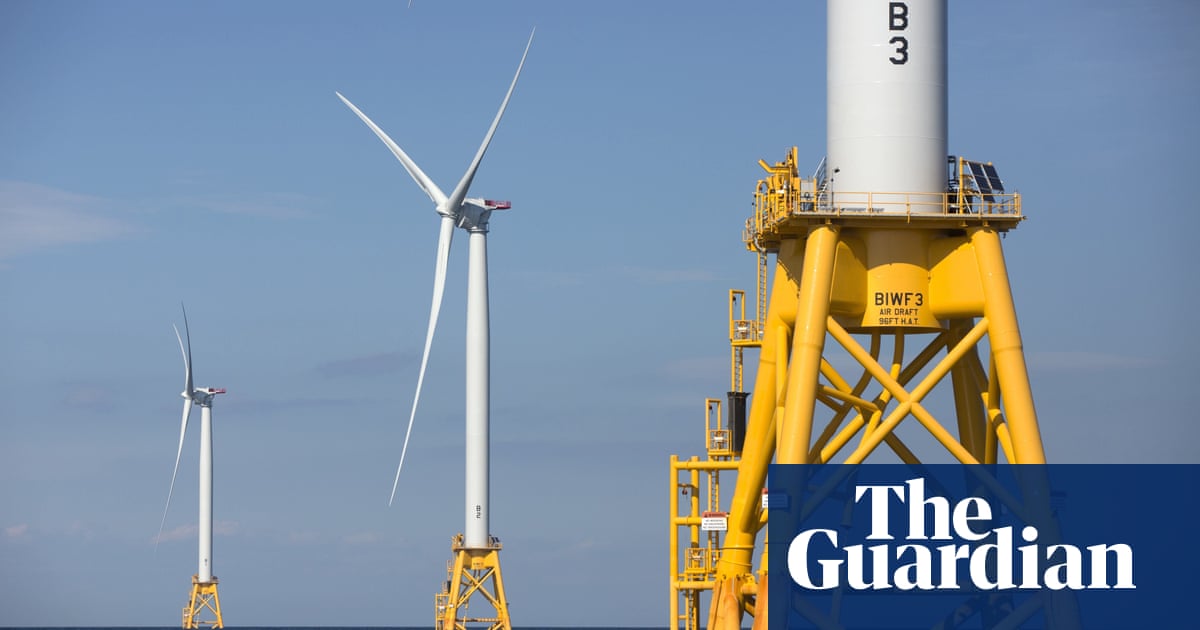Welcome to Tesla Motors Club
Discuss Tesla's Model S, Model 3, Model X, Model Y, Cybertruck, Roadster and More.
Register
Install the app
How to install the app on iOS
You can install our site as a web app on your iOS device by utilizing the Add to Home Screen feature in Safari. Please see this thread for more details on this.
Note: This feature may not be available in some browsers.
-
Want to remove ads? Register an account and login to see fewer ads, and become a Supporting Member to remove almost all ads.
You are using an out of date browser. It may not display this or other websites correctly.
You should upgrade or use an alternative browser.
You should upgrade or use an alternative browser.
Hydrogen vs. Battery
- Thread starter siry
- Start date
Question...and I may be showing my ignorance on one or many levels.
Hydrogren vehicles still have batteries which power the motors, no? We've seen with Tesla that it requires a large battery to produce enough power to make a very high performance EV. How would it be possible to have a high performance hydrogen vehicle? Of course there's direct combustion but that's extra stupid. Is there any way for a standard hydrogren->battery->motors vehicle to be high performance? I'm not seeing it. Some friends of mine are really hot on hydrogen and I am most certainly not for hundreds of reasons, just wondered if this is another reason. Thank you!
Hydrogren vehicles still have batteries which power the motors, no? We've seen with Tesla that it requires a large battery to produce enough power to make a very high performance EV. How would it be possible to have a high performance hydrogen vehicle? Of course there's direct combustion but that's extra stupid. Is there any way for a standard hydrogren->battery->motors vehicle to be high performance? I'm not seeing it. Some friends of mine are really hot on hydrogen and I am most certainly not for hundreds of reasons, just wondered if this is another reason. Thank you!
EEStor capacitor?Question...and I may be showing my ignorance on one or many levels.
Hydrogren vehicles still have batteries which power the motors, no? We've seen with Tesla that it requires a large battery to produce enough power to make a very high performance EV. How would it be possible to have a high performance hydrogen vehicle? Of course there's direct combustion but that's extra stupid. Is there any way for a standard hydrogren->battery->motors vehicle to be high performance? I'm not seeing it. Some friends of mine are really hot on hydrogen and I am most certainly not for hundreds of reasons, just wondered if this is another reason. Thank you!
mspohr
Well-Known Member
Hydrogen fuel cell vehicles have a small "buffer" battery since the fuel cell has trouble adapting to the large power swings of driving the car. Since this battery is smaller, it is not capable of large power output of a BEV. A larger battery (or capacitors) could improve the instantaneous power output.Question...and I may be showing my ignorance on one or many levels.
Hydrogren vehicles still have batteries which power the motors, no? We've seen with Tesla that it requires a large battery to produce enough power to make a very high performance EV. How would it be possible to have a high performance hydrogen vehicle? Of course there's direct combustion but that's extra stupid. Is there any way for a standard hydrogren->battery->motors vehicle to be high performance? I'm not seeing it. Some friends of mine are really hot on hydrogen and I am most certainly not for hundreds of reasons, just wondered if this is another reason. Thank you!
SageBrush
REJECT Fascism
Hydrogen fuel cell vehicles have a small "buffer" battery since the fuel cell has trouble adapting to the large power swings of driving the car. Since this battery is smaller, it is not capable of large power output of a BEV. A larger battery (or capacitors) could improve the instantaneous power output.
Yes, but the total power is not just the battery, it is the battery + fuel cell stock. It acts like a parallel hybrid
mspohr
Well-Known Member
Just looked this up. Toyota Marai fuel cell stack max output is 128 kW and the battery is (only) 1.24 kWh so the battery really can't contribute anything to performance so you are stuck with 128 kW max power. (For comparison, the Model 3 or Y have two motors about 190 kW and 250 kW so much better performance.Yes, but the total power is not just the battery, it is the battery + fuel cell stock. It acts like a parallel hybrid
I was thinking that they would have a bigger battery but apparently not.
Performance is limited by the fuel cell. They could put in a bigger battery or fuel cell but that would increase cost, weight, etc.
Yep. The Nikola Tre Semi has two 70kWh batteries and two 100kW fuel cells. So 200kW from the fuel cells, but 140kWh of batteries to fill in when more power is needed.Just looked this up. Toyota Marai fuel cell stack max output is 128 kW and the battery is (only) 1.24 kWh so the battery really can't contribute anything to performance so you are stuck with 128 kW max power.
It looks like you are comparing kW to kWh.Just looked this up. Toyota Marai fuel cell stack max output is 128 kW and the battery is (only) 1.24 kWh so the battery really can't contribute anything to performance so you are stuck with 128 kW max power. (For comparison, the Model 3 or Y have two motors about 190 kW and 250 kW so much better performance.
I was thinking that they would have a bigger battery but apparently not.
Performance is limited by the fuel cell. They could put in a bigger battery or fuel cell but that would increase cost, weight, etc.
The battery capacity maybe only 1.24 kWh but it seems like it may be able to put out as much as 31.5 kW.
"The new Mirai is equipped with lithium-ion high-voltage battery in place of the current model’s nickel-metal hydride unit. Although smaller in size, it is more energy-dense, giving higher output and superior environmental performance. Containing 84 cells, it has a 310.8 rated voltage compared to 244.8, and a 4.0 Ah capacity, versus 6.5 Ah. Overall weight has been reduced from 46.9 to 44.6 kg. The output has improved from 25.5 kW x 10 seconds to 31.5 kW x 10 seconds."

SageBrush
REJECT Fascism
Just looked this up. Toyota Marai fuel cell stack max output is 128 kW and the battery is (only) 1.24 kWh
The Prius can output 196 HP, of which up to 150 is the ICE. This suggests that 46 HP is the battery, or about 34 kW.
It is a fair guess that Mirai has a very similar drivetrain with the fuel cell stack substituting for the ICE
2024 Toyota Prius Specifications | Toyota.com
Browse through the full specs of the 2024 Toyota Prius to find out how this stylish Toyota hybrid car can enhance the time you spend behind the wheel.
Not for long, of course, but enough for passing.
mspohr
Well-Known Member
10 secondsIt looks like you are comparing kW to kWh.
The battery capacity maybe only 1.24 kWh but it seems like it may be able to put out as much as 31.5 kW.
"The new Mirai is equipped with lithium-ion high-voltage battery in place of the current model’s nickel-metal hydride unit. Although smaller in size, it is more energy-dense, giving higher output and superior environmental performance. Containing 84 cells, it has a 310.8 rated voltage compared to 244.8, and a 4.0 Ah capacity, versus 6.5 Ah. Overall weight has been reduced from 46.9 to 44.6 kg. The output has improved from 25.5 kW x 10 seconds to 31.5 kW x 10 seconds."

SageBrush
REJECT Fascism
10 seconds
Yes. Enough for neighborhood drag racing, or passing a slow Tesla Semi
Electroman
Well-Known Member

World's First Hydrogen Train With A Speed Of 160 Kilometers Per Hour Rolled Out In China - FuelCellsWorks
On December 28th, the world's first hydrogen-powered urban train with independent intellectual property rights, developed jointly by CRRC Changchun and
Doesn’t make sense to me at all.
mspohr
Well-Known Member
First, TFA is a clumsy machine translation.
World's First Hydrogen Train With A Speed Of 160 Kilometers Per Hour Rolled Out In China - FuelCellsWorks
On December 28th, the world's first hydrogen-powered urban train with independent intellectual property rights, developed jointly by CRRC Changchun andfuelcellsworks.com
Doesn’t make sense to me at all.
Second: The big picture is the fossil fuel companies will do anything to stay in business.
ItsNotAboutTheMoney
Well-Known Member
10 seconds
Yes, although also used for regen, the battery is primarily there to supplement or and to allow the fuel cell to ramp. It's the peaker plant to the fuel cell base load.
Of course, we know you don't really need base load power.
mspohr
Well-Known Member

How ocean wind power could help the US fossil fuel industry
The government wants to lease offshore wind in the Gulf of Mexico – but the oil industry wants it for its own needs
The administration has committed to building 30 gigawatts of offshore wind to power 10m homes nationally by 2030 to help boost renewable energy in the country. But multiple companies interested in leasing offshore parcels in the Gulf of Mexico want to use that energy to make renewable hydrogen to power industrial processes to reduce their carbon footprint. The so-called “green” hydrogen could be sent to shore via the gulf’s existing extensive oil and gas pipeline network and replace traditional hydrogen made from fossil fuels. Green hydrogen could reduce the state’s carbon emissions by as much as 68% and spark an industrial revolution, according to proponents.
The approach, yet to be tested anywhere in the world, is being criticized by some as inefficient and a way to prolong the life of the region’s oil and gas industry even as the International Energy Agency has called for a halt to the development and production of oil and gas to keep climate pollution at manageable levels.
Electroman
Well-Known Member
What?? You can’t do that !!The so-called “green” hydrogen could be sent to shore via the gulf’s existing extensive oil and gas pipeline network
Hydrogen simply cannot be transported through regular pipelines that are used for fluids. Hydrogen is the most leaky gas in the planet. Transporting through pipelines is almost near impossible for long distances.
mspohr
Well-Known Member
Just to clarify, that is their assertion, not mineWhat?? You can’t do that !!
Hydrogen simply cannot be transported through regular pipelines that are used for fluids. Hydrogen is the most leaky gas in the planet. Transporting through pipelines is almost near impossible for long distances.
Electroman
Well-Known Member
I get that.Just to clarify, that is their assertion, not mine
Even many with good science background often are sucked into it.
miimura
Well-Known Member
When one's actual intent is green washing, one might not actually care about such nuance as leakage.I get that.
Even many with good science background often are sucked into it.
Just look at all the methane leakage from the fossil fuel industry. If they actually cared about emissions, they would keep their valuable product from leaking.
Similar threads
- Replies
- 86
- Views
- 15K
- Replies
- 43
- Views
- 7K
- Replies
- 11
- Views
- 2K
- Replies
- 77
- Views
- 11K
- Article
- Replies
- 52
- Views
- 11K


